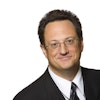 J.D. Foster
J.D. Foster
Former Senior Vice President, Economic Policy Division, and Former Chief Economist
Published
August 03, 2018

Job growth remained strong into the third quarter, though growth slowed from the previous two extraordinary months. Particularly encouraging is the sustained, strong growth in residential construction employment, now up 5.2% over June of 2017, more than thrice the overall economy’s growth rate. Strong construction hiring suggests some relief for a capacity constrained housing sector and exceptionally tight housing markets in many areas of the country.
The Fed’s policy of normalizing monetary policy – most notably by slowly and steadily raising the Fed funds rate – recently caught the president’s eye. When asked about the Fed’s actions the president observed, “I’m not happy about it” and “[Fed] tightening now hurts all that we have done,” though the President went on to note, “I’m letting them do what they think is best.” However, in making these comments the president missed an opportunity to take some credit for the success of his own pro-growth policies.
Heretofore, the President’s approach to the Fed has been spot on. For example, his appointments of Jay Powell as Chairman, and of Randy Quarles and Richard Clarida as Vice-Chairs, along with the other Fed Governor nominees awaiting Senate confirmation. His actions toward the much-criticized Consumer Financial Protection Bureau have likewise been right on target.
Nonetheless, the president’s comments drew criticism as viewers believed him to be threatening the Fed’s “independence.” Central bank independence is a central tenet of sound policy because the monetary authority has tremendous power to goose the economy temporarily – often with terrible subsequent consequences. This is a power politicians worldwide and down through history have employed for their political benefit. A prime example today is Venezuela, where socialist strongman President Nicola Madura has used the central bank to so debase Venezuela’s currency that the IMF projects inflation this year will hit a million percent.
To be sure, a central bank’s independence is always a matter of political balance. For example, Congress established the Fed and its mandate in statute. This was a political act. The president nominates those who serve on the Board, and they are subject to Senate confirmation. The Fed Chairman is often called to Congress to testify. The Fed is not perfectly independent of political oversight.
Yet the Fed’s execution of monetary policy subject to its mandate has by modern tradition been allowed to proceed without comment or attempt at interference by the administration. Individual members of Congress are free to play backseat driver to their heart’s content, but the president has in this respect been expected to remain mum in public comments.
The Fed is raising the funds rate slowly up to a neutral rate. At the same time, it is slowly working down its enormous holdings of assets acquired during the episodes of post-recession quantitative easing.
But the Fed is not tightening policy to slow the economy. Rather, it’s taking away some of the extra support provided since the recession – support the economy no longer needs thanks in large part to the president’s own pro-growth regulatory actions and tax reform.
Further, even as the Fed has raised the funds rate, other longer-term interest rates have barely budged. For example, the 10-year Treasury note rate remains below 3% and remains in a band that goes back at least five years. So, even as the Fed normalizes the short-end funds rate, the rest of the interest rate structure appears largely unaffected and so the economy has remained largely immune.
President Trump would be on solid ground taking credit for nominating such sensible helmsmen to steer the Fed and for helping to create the conditions through his regulatory and tax policies that allow the Fed to raise the funds rate to normalize monetary policy. As the president might say, moving the Fed to a neutral policy is a good thing, not a bad thing.
About the authors

J.D. Foster
Dr. J.D. Foster is the former senior vice president, Economic Policy Division, and former chief economist at the U.S. Chamber of Commerce. He explores and explains developments in the U.S. and global economies.





